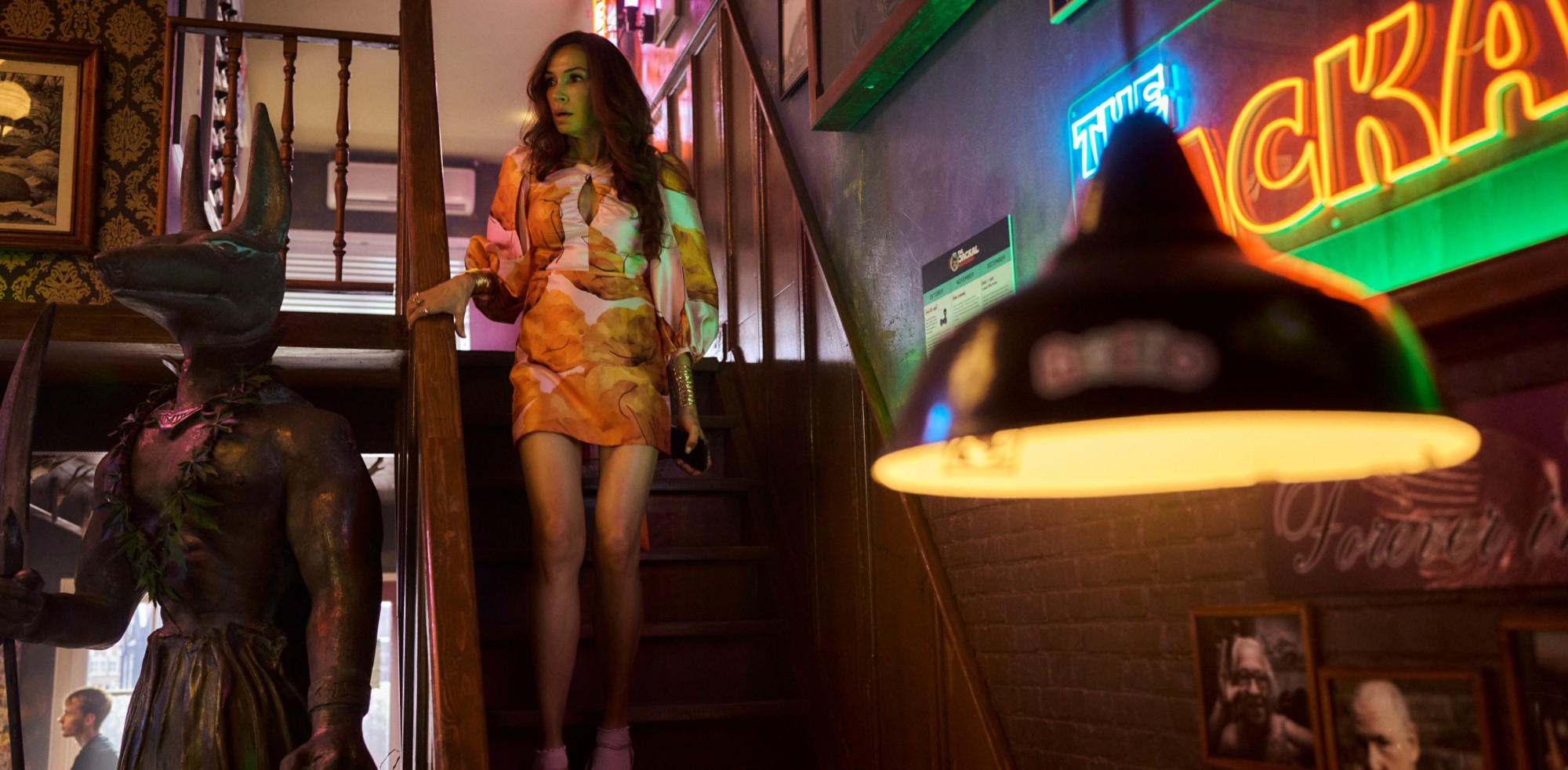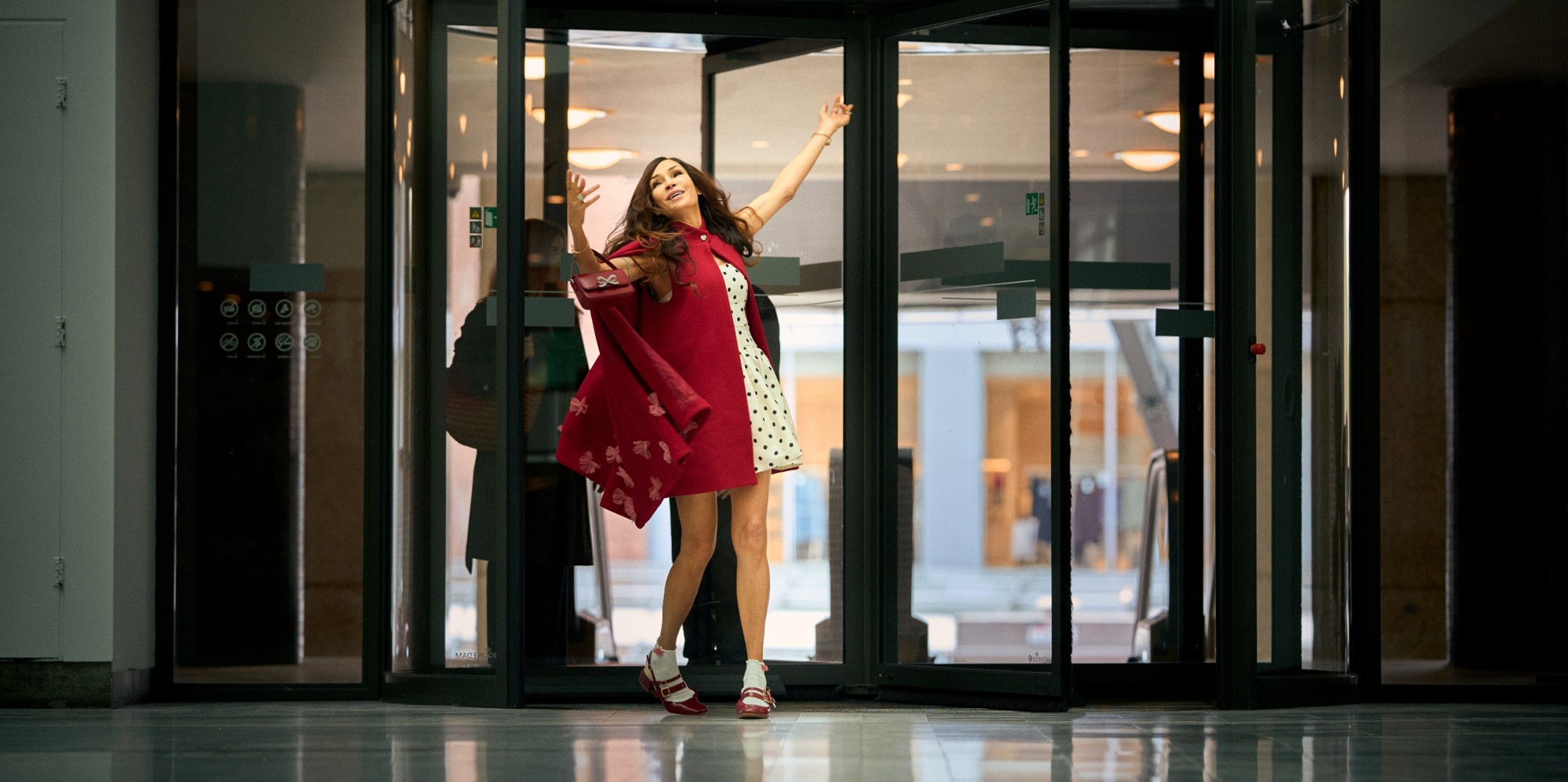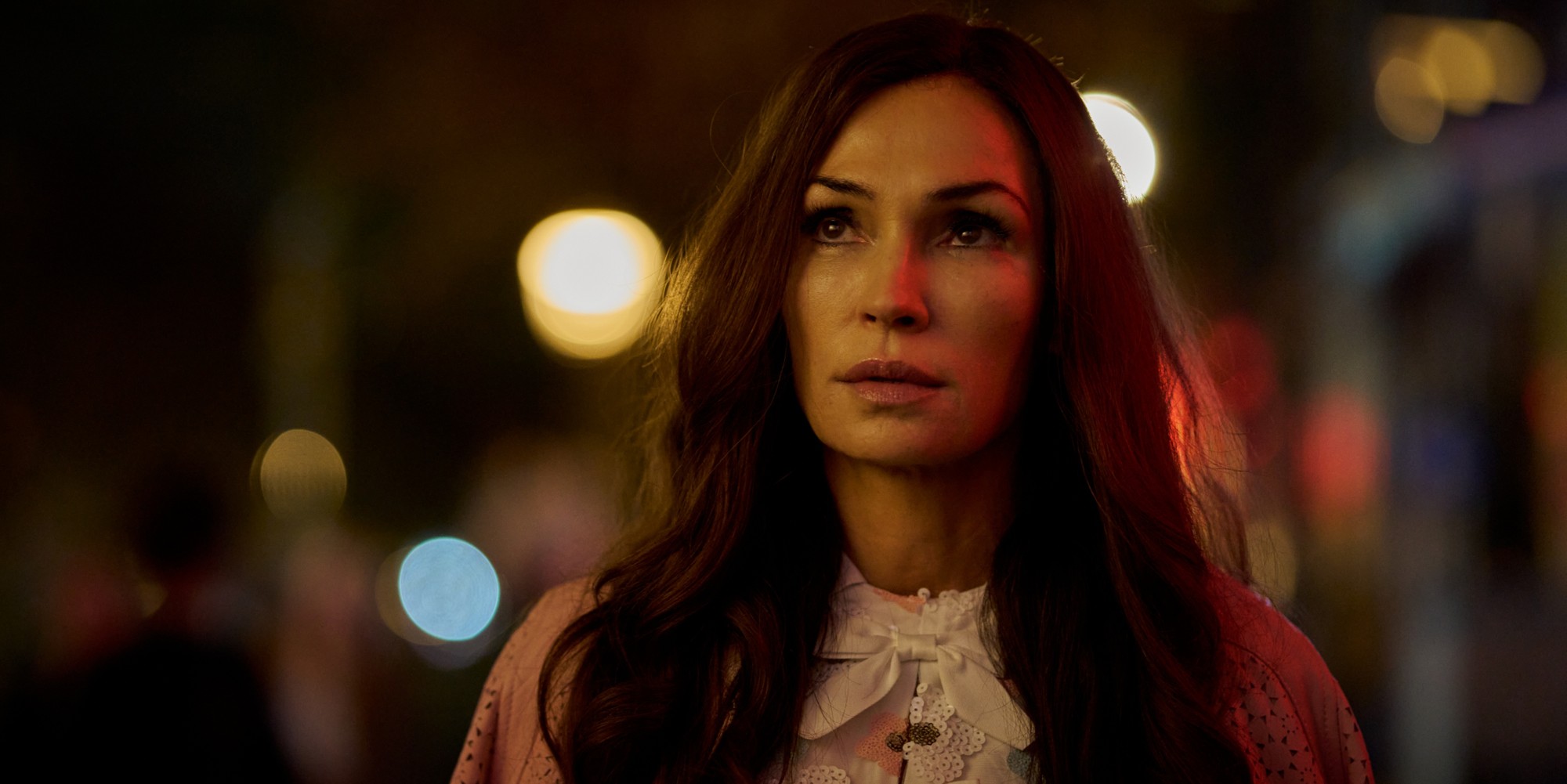Co-created by Piet Matthys, Nico Moolenaar, and Bart Uytdenhouwen, Netflix’s ‘Amsterdam Empire’ is a Dutch Crime Drama series that uses Amsterdam‘s famous Red Light District as a lens into its zeitgeist. Jack Van Doorn is a business tycoon who has built an internationally renowned coffeehouse empire from scratch, but when he is caught having an affair, all hell breaks loose. Betrayed, his wife, Betty, seeks revenge and puts to use an entire arsenal of his deepest, darkest secrets that she has kept shut about for so long. As each piece in the puzzle unfolds, both parties realize that the only way out of this mess is with a thumping victory, but that means taking risks that can do more harm than good. The show makes full use of Amsterdam’s cultural and urban landscapes, ensuring that the characters and their respective journeys are steeped in a layer of authenticity.
Amsterdam Empire References the Netherlands’ Vibrant Coffeeshop Culture
While ‘Amsterdam Empire’ is a fictional story penned by writers Piet Matthys, Nico Moolenaar, and Bart Uytdenhouwen, the premise itself seems to borrow from the Netherlands’ real-life coffeeshops, which, more often than not, double as local cannabis outlets. While the sale, possession, and use of non-medicinal drugs, such as cannabis, is technically illegal under Dutch Law, the emergence of gedoogbeleid, that is, “tolerance policy,” saw an increase in overall tolerance towards recreational use of such substances. To that end, the sale of cannabis in designated, licensed coffeeshops is allowed by local authorities, provided that there is no sale of hard drugs, alcohol, or any form of drugs to minors. Alongside cannabis, these establishments typically serve food and beverages, which over time turn them into social hotspots, as seen in the case of The Jackal, the coffeeshop chain owned by Jack in the series.

As the story progresses, the legalities of Jack’s business empire are put into question numerous times, with loopholes regarding both the production and sale of cannabis being discovered and dismantled in real time. As such, the show’s thrilling pace gives a deep look into real-life anxieties about these establishments, balancing the perspectives of the owners, patrons, as well as the law authorities in the mix. While no real-life coffeeshop chain can be directly linked to The Jackal as its inspiration, the popular cannabis company known as The Bulldog might have served as a reference point. The company, based in Amsterdam, operates a chain of internationally renowned coffeeshops and stores that bears a striking resemblance to The Jackal’s business model. Additionally, both companies are named after canines and place a lot of emphasis on their brand image, making it likely that the coffeeshop giant served as the partial basis for the fictional company.
The Characters of Amsterdam Empire Are Grounded in Realistic Emotions
While Jack’s cannabis empire serves as the backdrop for much of the season, an equally important narrative force is the interpersonal drama in his family, largely stemming from a conflict between him and his wife, Betty. Actor Famke Janssen, who essays the role, spoke to Variety about the storytelling and aesthetic choices made by the creative team of the show. In the interview, Janssen detailed both the physical and psychological commitments she made to add an extra oomph to her performance, stating, “I wanted to challenge myself, even by doing a music video and learning to dance and sing.” In the same vein, she referred to Paula Abdul, a famous singer, dancer, and television personality, as inspiration behind Betty’s visual aesthetics, adding, “we looked at everyone for inspiration, (…) and all these other women who were performing at the time. Their fashion, choreography.”

While Janssen’s creative prowess made Betty all the more believable as a character, it also tapped into her psyche. The actor, who also serves as the executive producer for the series, commented, “I didn’t want her to just be this angry whirlwind of a person; we’ve all seen that before. I wanted the anger to be rooted in real hurt and devastation.” To that end, the show’s rendition of complex circumstances and the emotions they give rise to is rooted in an in-depth understanding of how family and domestic structures interact with the idea of power and control. Co-creator Nico Moolenaar described the production as an opportunity to create a brand new storytelling universe, and that reiterates the fictional nature of ‘Amsterdam Empire.’ While it is possible that the series draws inspiration from real-life public controversies, both in showbiz and in the cannabis coffeeshop industry, such overlaps are likely coincidental in nature.
Read More: Amsterdam Empire: Is The Jackal Based on a Real Coffeeshop Chain?


